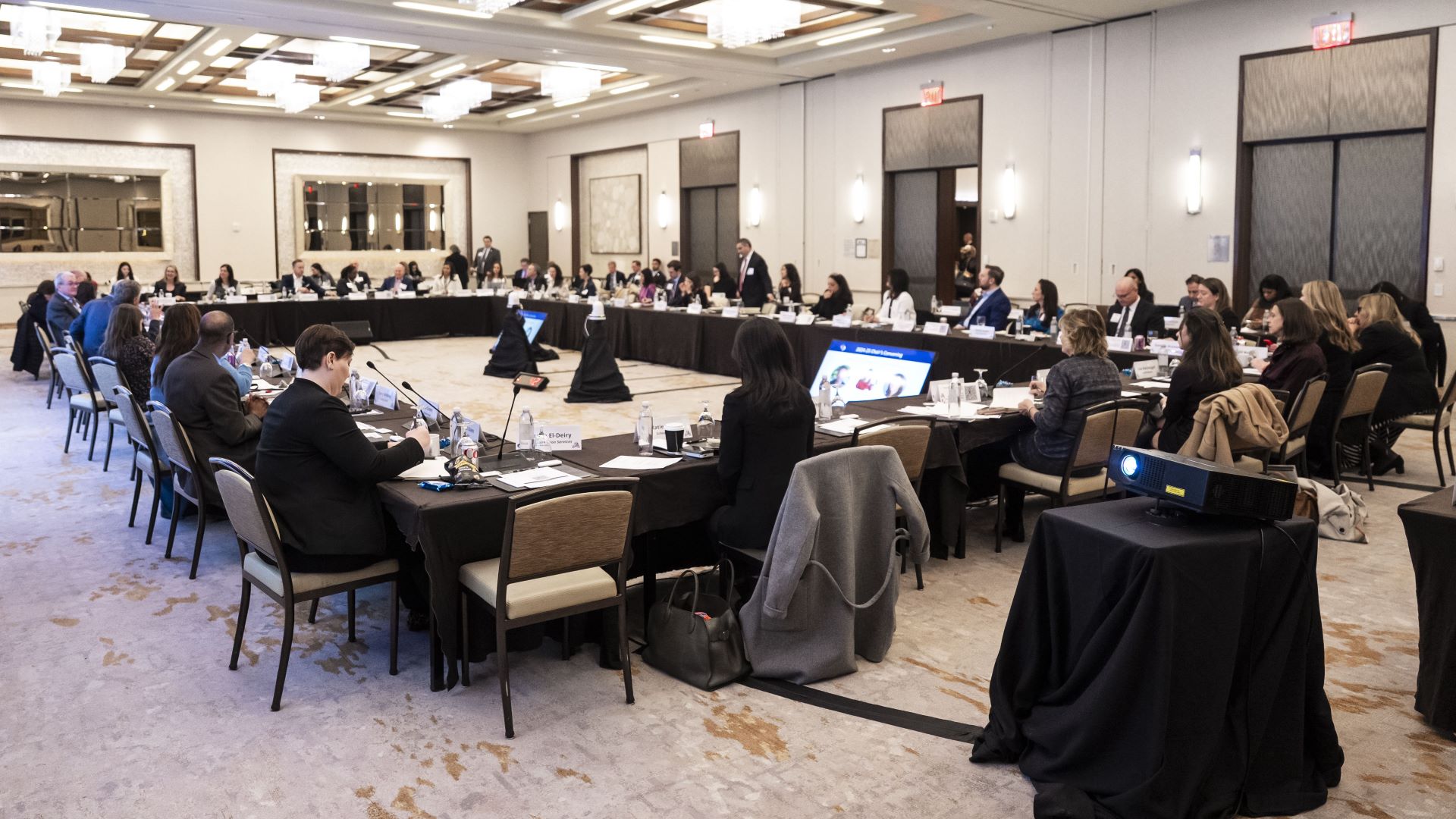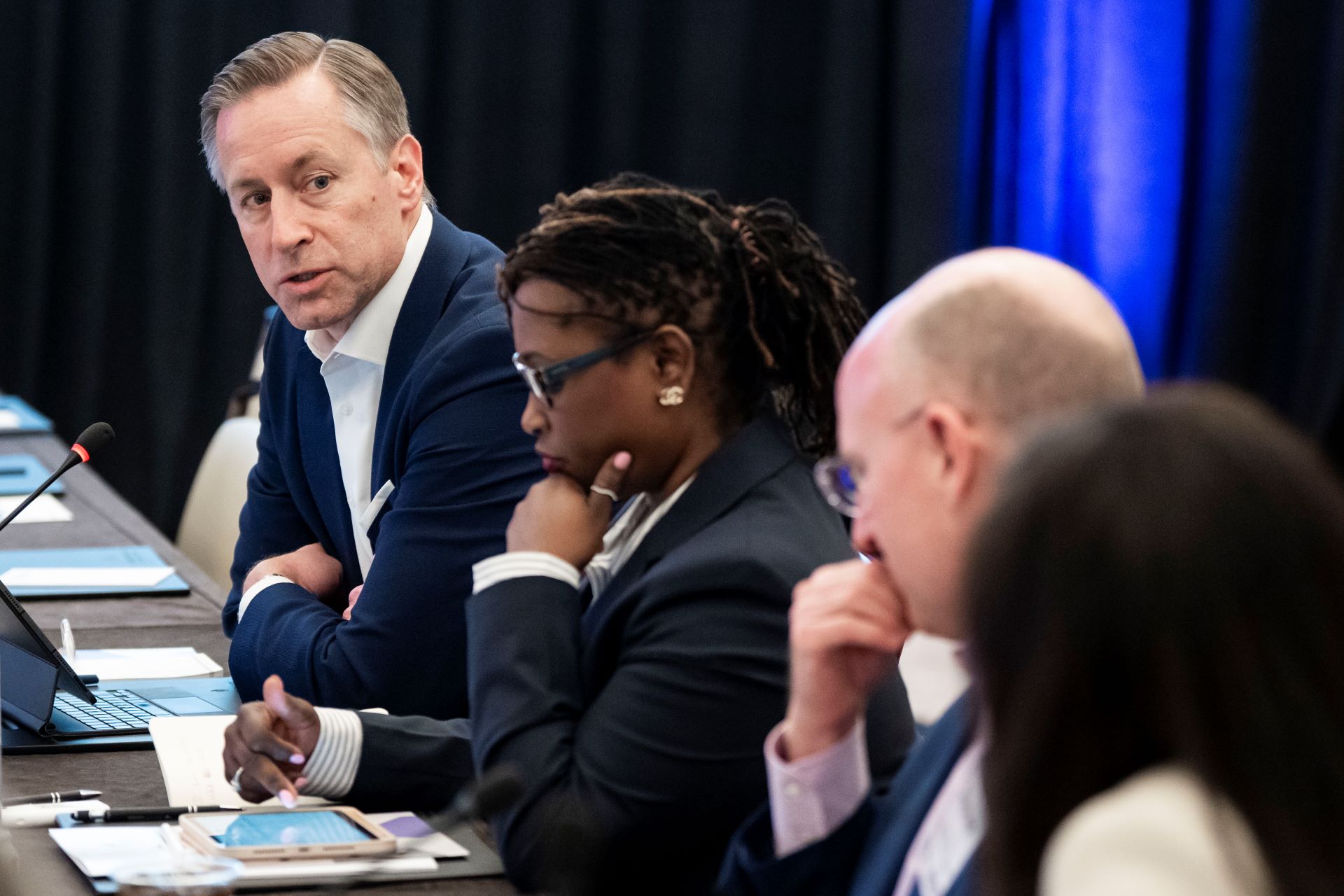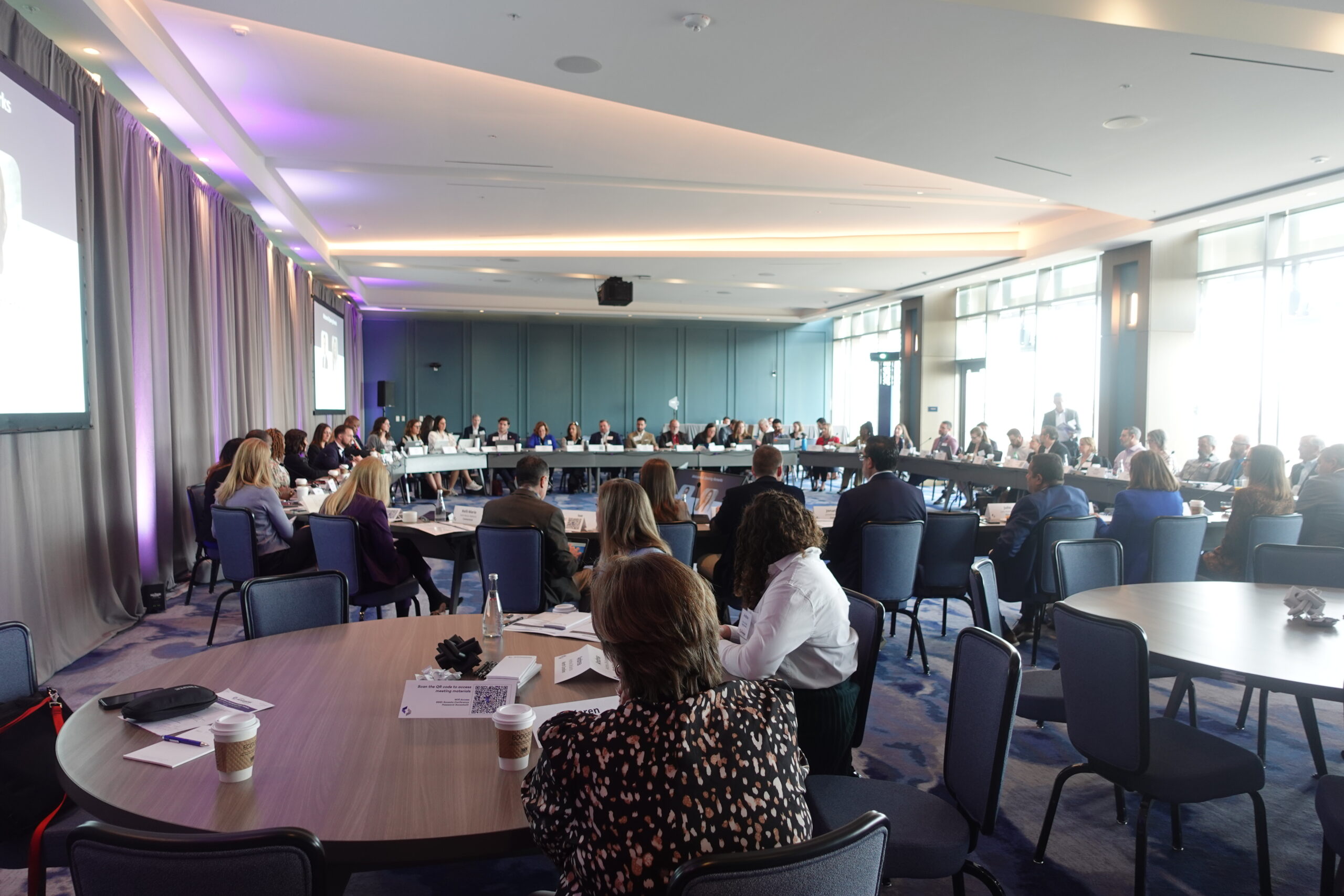October 23, 2020
The Honorable James Inhofe, Chairman
Senate Armed Services Committee
218 Russell Senate Office Building
Washington, D.C. 20510
The Honorable Jack Reed, Ranking Member
Senate Armed Services Committee
218 Russell Senate Office Building
Washington, D.C. 20510
The Honorable Adam Smith, Chairman
House Armed Services Committee
2216 Rayburn House Office Building
Washington, D.C. 20515
The Honorable Mac Thornberry, Ranking Member
House Armed Services Committee
2216 Rayburn House Office Building
Washington, D.C. 20515
Dear Chairman Inhofe, Ranking Member Reed, Chairman Smith and Ranking Member Thornberry:
Several months ago, the National Governors Association (NGA) wrote to you requesting the inclusion of Governors’ top legislative priorities in this year’s National Defense Authorization Act (NDAA). As executive director of NGA, I write to you on behalf of the nation’s Governors to thank both the House and Senate for including provisions in their respective bills reflecting this request.
A top priority for Governors this year, and over the past several years, is that Congress grant the President and the secretary of defense, upon request from a Governor, the ability to authorize Title 32, section 502 (f) for National Guard members supporting the response to a catastrophic disaster. This year our request also included authorization in response to pandemics.
Starting on the next page you will find several of the Governors’ NDAA priorities for your consideration as you look to negotiate the final conference bill. These items include:
- National Guard Response to Catastrophic Disasters and Pandemics
- Work for Warriors Program
- National Guard Cybersecurity
- Perfluorooctane Sulfonate (PFOS) and Perfluorooctanoic Acid (PFOA)
- Military Family Matters
Thank you for your continued support of these top NGA priorities for the Fiscal Year 2021 NDAA and for our National Guard. As commanders-in-chief of their respective national guard, Governors take seriously their responsibility for ensuring the well-being of our service members and ensuring our nation’s national defense.
Sincerely,
Bill McBride
Executive Director
National Governors Association
Top Requests for the FY21 National Defense Authorization Act
National Guard Response to Catastrophic Disasters and Pandemics
The absence of a streamlined, transparent and rapid authorization is causing significant challenges to our collective response to the novel coronavirus (COVID-19) pandemic. Early in the COVID-19 response, Governors requested the Administration authorize the use of Title 32 for the National Guard response. The lack of a formal process, guidance or reply from the Administration meant Governors were left with few options. Governors made numerous appeals, over several weeks, to the Secretary of Defense, the Administrator of the Federal Emergency Management Agency (FEMA), the Vice President and the President. Meanwhile COVID-19 cases grew exponentially, and Guard members were at risk on the front lines supporting testing site; delivering critical resources; assisting in food distribution; securing alternative care facilities, and assisting medical professionals and first responders.
Even more concerning is the recent requirement by the Administration that states and territories must fund 25 percent of the cost associated with a federal duty status. Never have states and territories been required to fund a federal duty status, let alone during such an unprecedented pandemic and economic struggle.
During a crisis Governors should be able to rely on the federal government to provide clear guidance and requirements; a well-understood and transparent process; and resources, all in a timely and realistic manner. This guidance should be consistent and applied in a transparent and equitable fashion.
COVID-19 has made it clear that the use of Title 32 for large-scale disasters and pandemics requires a legislative solution. Therefore, NGA requests the following provisions be included in the final NDAA:
- House Sections 520C: NGA supports the modification of Title 32 under this provision and notes that the language is not a mandate to the Department of Defense, rather it provides an additional tool for response efforts.
- House Section 519: NGA supports the tracking and improved reporting on the decision-making process and timing on the authorization and use of National Guard members under Title 32 in response to COVID-19. NGA encourages the Department of Defense to share this information with the states and territories.
- House Section 612 & Senate Section 602: NGA requested and supports the authorization of hazardous duty incentive pay for all COVID-19 related National Guard and military missions.
Work for Warriors
- House Section 516: NGA requested and supports the authorization of a nationwide job placement program for military members, to include the National Guard and Reserves.
National Guard Cybersecurity
- House Section 1628 & Senate Section 1625: NGA supports the expansion and updating of policy related to the use of National Guard in cyberspace, to include under Title 32 authority.
- Senate Section 590: NGA supports the establishment of a pilot program for National Guard support, training and technical assistance to state governments in response to cyber incidents.
Perfluorooctane Sulfonate (PFOS) and Perfluorooctanoic Acid (PFOA)
- House Section 314 & Senate Section 311: NGA supports the inclusion of language to clarify the use of environmental restoration projects for activities conducted by the National Guard under Title 32.
- House Section 332: NGA supports the inclusion of language that requires the Department of Defense to meet or exceed the most stringent standards when performing removal or remediation actions of PFOS or PFOA contamination from Department of Defense or National Guard activities.
Military Family Matters
- Senate Section 2881: NGA appreciates and shares the goal of the Committee and the Department of Defense of improving the well-being and quality of life for military members and their families. However, we are concerned that the Senate provision would circumvent well-established metrics and reporting mechanisms within the Every Student Succeeds Act (ESSA) and the Workforce Innovation and Opportunity Act (WIOA). We believe the existing mechanisms and metrics under ESSA and WIOA are the appropriate tools, and do not believe that the Department of Defense should create its own measures to assess states on these critical areas. NGA requests that the Senate recede to the House.












